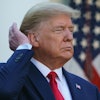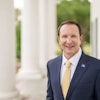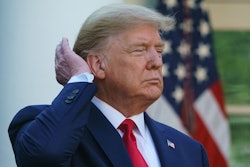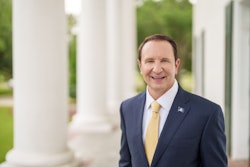GRAND FORKS, N.D.
Five current and former tribal college presidents have decided not to take part in a photo shoot for a University of North Dakota student recruiting campaign because of their opposition to the Fighting Sioux nickname, a UND official says.
The first round of the Beyond Beads and Feathers campaign began about two years ago with posters of nine American Indian UND graduates who went on to successful careers. The posters were distributed to reservation high schools and tribal colleges and displayed in the American Indian Student Services house on campus, said Bob Boyd, a UND vice president.
For a second round of the poster campaigns, UND had planned to take a group photo of the 14 UND graduates who are past or present tribal college presidents. Boyd said five graduates declined to take part, citing UND’s continued use of the nickname.
“These are all people for whom I have a great deal of respect,” Boyd said. “(The photo shoot) is something that would have a great deal of impact on Native American students as they think about their own university careers and the kinds of things they can accomplish. These are people who have worked very hard to get to the point they’re at.”
United Tribes Technical College President David Gipp was one of the tribal college presidents who declined to participate in the photo shoot. In an e-mail, he praised UND’s programs for American Indians, but called the nickname “incessantly and increasingly a topic of dissension among the various communities, tribal and non-tribal.”
The other tribal college leaders who declined to participate in the photo shoot are Cynthia Lindquist, president of Cankdeska Cikana tribal college in Fort Totten; Laurel Vermillion, president of Sitting Bull College in Fort Yates; Donald Day, president of Fond du Lac tribal and Community College in Cloquet, Minn.; and Elizabeth Yellow Bird, former president of Fort Berthold tribal college.
UND still plans to do a second round of the poster campaign with portraits of American Indian UND grads, Boyd said, but that group will not include the tribal college administrators.
“The nickname is a complicating factor for many of our Native American students and graduates,” Boyd said. “And while they don’t agree universally on the issue, it’s clear that it remains divisive.”
Click here to post and read comments
© Copyright 2005 by DiverseEducation.com


















